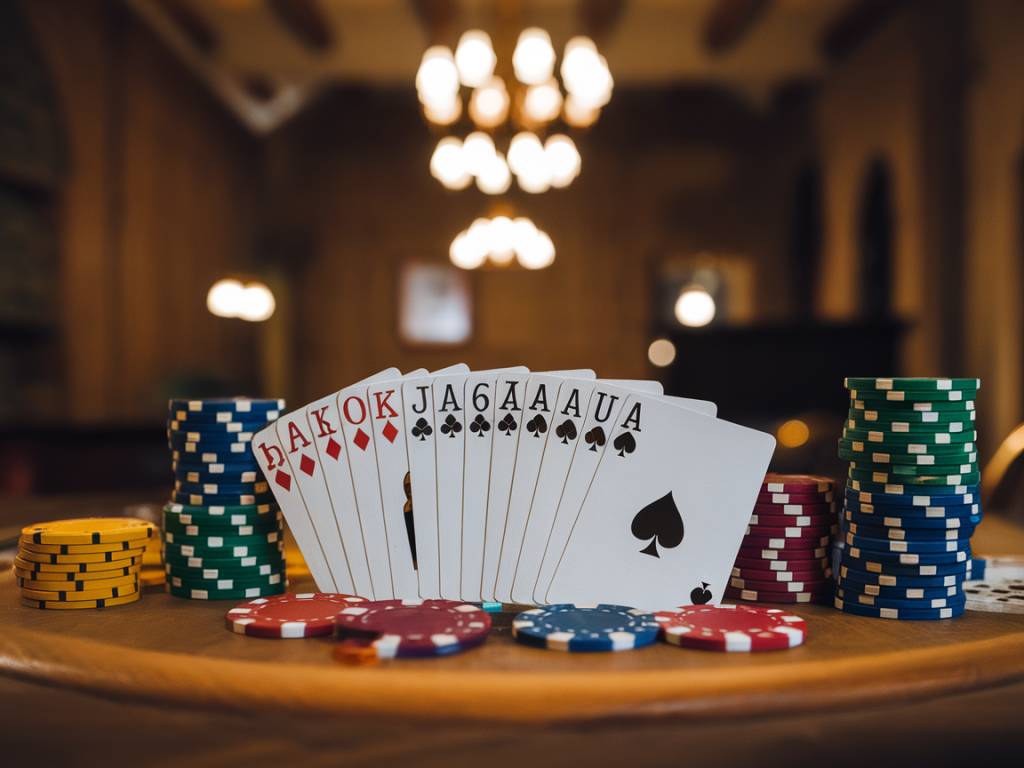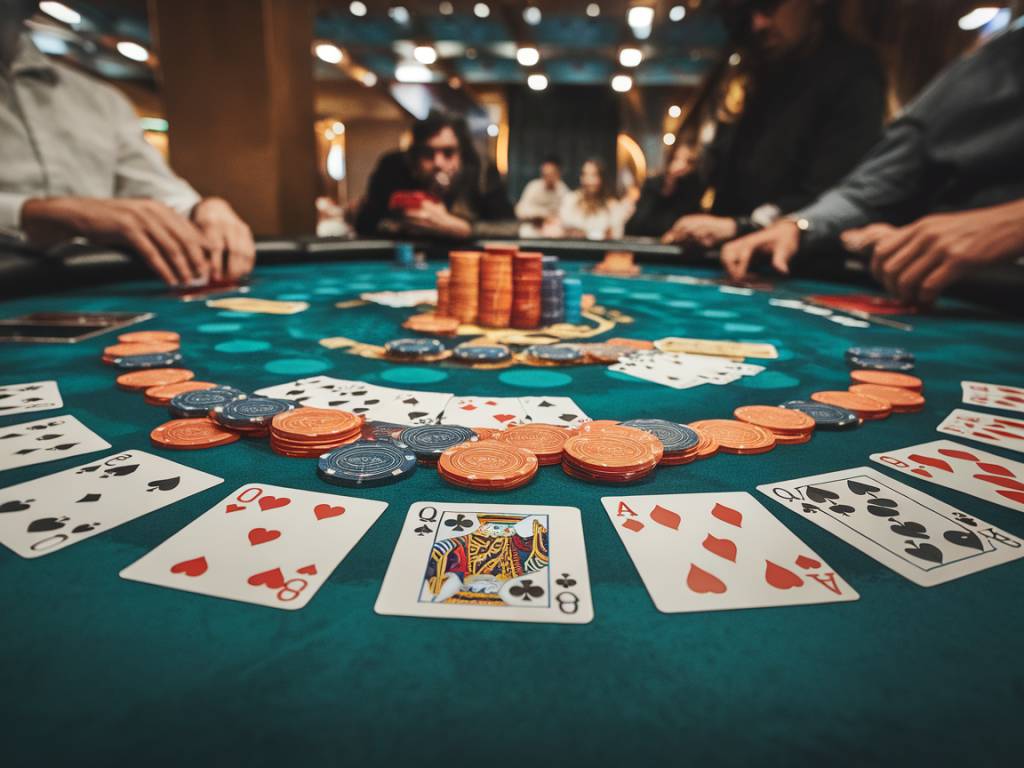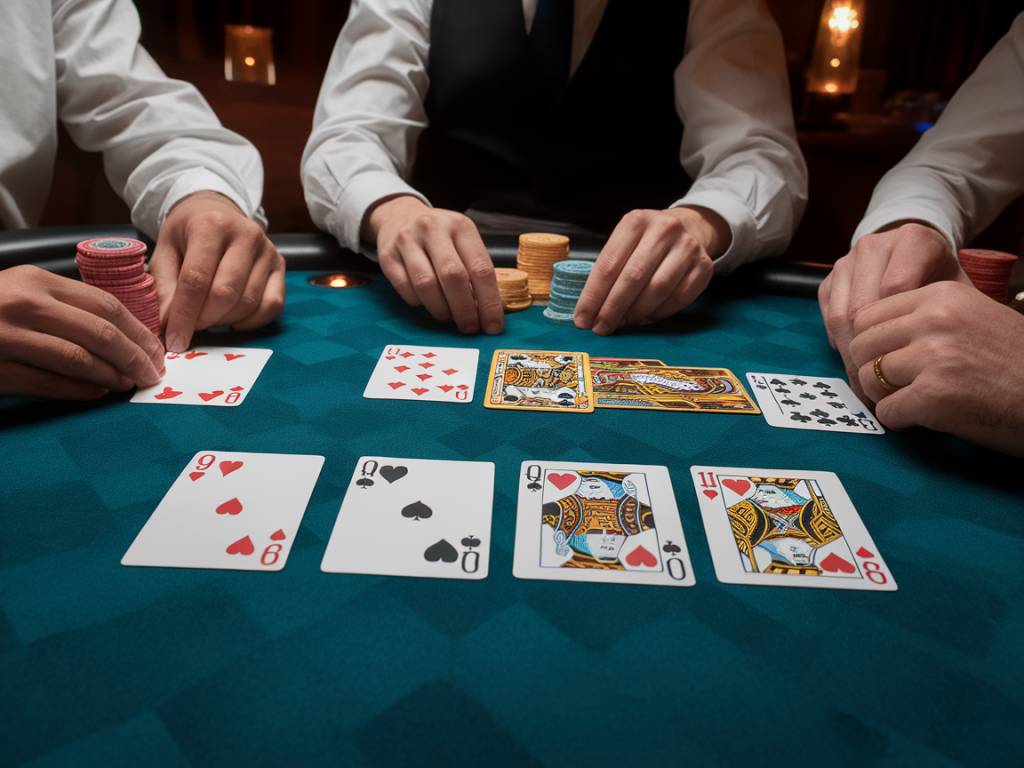Hey there, I’m Ramy! 🎴 Welcome to my guide on understanding and mastering the basics of poker. As a seasoned poker player, I’m thrilled to walk you through the essential rules and strategies of this exciting game. Knowing these basics is the first step towards feeling confident at the table and having lots of fun. Let’s dive in!
Understanding the Objective
The primary objective of poker is to form the best possible hand of cards compared to your opponents or to convince them to fold their hands through betting and strategy. The game is generally played with a standard 52-card deck, and winning hands can be formed through a combination of individual strategy, skill, and a bit of luck.
Basic Poker Hands
Understanding the hierarchy of poker hands is crucial. Here’s a rundown of the hand rankings from highest to lowest:
- Royal Flush: A, K, Q, J, 10, all of the same suit. 🃏
- Straight Flush: Five consecutive cards of the same suit.
- Four of a Kind: Four cards of the same rank.
- Full House: Three of a kind combined with a pair.
- Flush: Five cards of the same suit, not in sequence.
- Straight: Five consecutive cards of different suits.
- Three of a Kind: Three cards of the same rank.
- Two Pair: Two different pairs.
- One Pair: One pair of the same rank.
- High Card: The highest card in your hand when no other hand is made.
Game Structure
The structure of poker games can vary, but here’s a rundown of a typical Texas Hold’em game, which is the most popular variation:
The Blinds
Before any cards are dealt, the two players to the left of the dealer place forced bets called the small blind and the big blind. These bets initiate the betting and help build the pot.
The Deal
Each player receives two private cards known as « hole cards ». These cards are dealt face down, and only you can see them. 💳
The Betting Rounds
There are four betting rounds:
Pre-Flop
Once the hole cards are dealt, the first betting round begins. Players can choose to call (match the big blind), raise (increase the bet), or fold (give up on the hand).
The Flop
Three community cards are dealt face-up in the center of the table. The second betting round ensues, where players can again check, bet, raise, or fold.
The Turn
A fourth community card is dealt. Another betting round occurs.
The River
The fifth and final community card is dealt. The last round of betting takes place.
The Showdown
If more than one player remains after the last betting round, the showdown happens. Players reveal their hole cards and the best hand wins the pot. If all other players fold, the remaining player wins the pot without showing their cards.
Betting Options
During each betting round, players have several options:
- Fold: Discard your hand and forfeit any claim to the pot.
- Check: Pass the action to the next player without betting, only if no bet has been made yet.
- Call: Match the current bet.
- Raise: Increase the current bet.
- All-In: Bet all of your remaining chips.
Common Terms to Know
Here are some essential poker terms to get you started:
- Blinds: Forced bets posted by two players before the deal.
- Pot: The total amount of money or chips bet during a hand.
- Community Cards: Cards dealt face-up in the center of the table shared by all players.
- Hole Cards: The private cards dealt to each player.
- Flop: The first three community cards dealt.
- Turn: The fourth community card dealt.
- River: The fifth and final community card dealt.
- Showdown: The final phase of a hand where remaining players reveal their cards.
Basic Strategies
Approaching poker with a basic strategy can greatly enhance your gameplay. Here are a few tips:
Know When to Fold
One of the most crucial skills in poker is knowing when to fold. Don’t throw good money after bad; if your hand isn’t strong, it might be better to walk away and save your chips for a better opportunity. 🚶♂️
Position Matters
Your position at the table influences your strategy. Players who act later in the round (like the dealer or « button ») have more information about their opponents’ actions, enabling more informed decisions.
Manage Your Bankroll
Set a budget for how much you’re willing to risk and stick to it. This helps to ensure that poker remains fun and doesn’t become a financial burden. 💰
Pay Attention to Opponents
Observing your opponents can give you valuable insights into their playing styles and tendencies. Spotting tells or patterns in betting can help you make more informed decisions.
Practice Makes Perfect
Like any skill, becoming proficient in poker requires practice. Consider playing in low-stakes games or using online resources to hone your skills without significant financial risk.
Recommended Products
For those looking to step up their poker game, here are some products I recommend:
- Poker Chip Set: A high-quality set for home games.
- Poker Table Top: Transform any table into a professional betting surface.
- Poker Strategy Books: Gain insights from the pros with these must-read books.
So, there you have it! You’re now armed with the basic rules and strategies to start your poker journey. Whether you’re looking to play casually with friends or venture into more competitive environments, understanding these fundamentals is essential. Shuffle up and deal! 🃏✨





